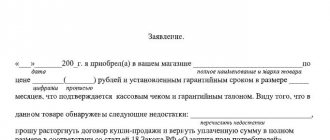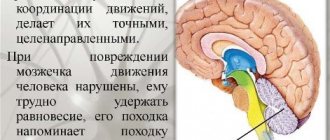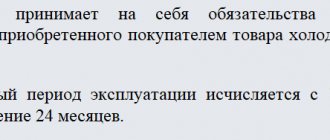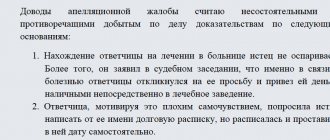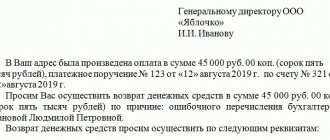Have you bought a low-quality product and the seller refuses to return your money? Have you been deceived in the market? If you need the help of a lawyer to protect your rights, feel free to call the available numbers in the table below, or leave a request in the form.
| Federal number | 8 ext. 736 |
| Moscow and Moscow region | 8 ext. 415 |
| St. Petersburg and Leningrad region | 8 ext. 967 |
To quickly navigate through the articles of the law, use the navigation:
You can also go to a page with a list of chapters and general terminology of the law.
Article 18. Consumer rights when defects are discovered in a product
(as amended by Federal Law dated October 25, 2007 N 234-FZ)
- If defects are discovered in the product, if they were not specified by the seller, the consumer has the right to:
- demand replacement with a product of the same brand (same model and (or) article);
- demand replacement with the same product of another brand (model, article) with a corresponding recalculation of the purchase price;
- demand a proportionate reduction in the purchase price;
- demand immediate free elimination of defects in the goods or reimbursement of costs for their correction by the consumer or a third party;
- refuse to fulfill the purchase and sale agreement and demand a refund of the amount paid for the goods. At the request of the seller and at his expense, the consumer must return the defective product.
In this case, the consumer also has the right to demand full compensation for losses caused to him as a result of the sale of goods of inadequate quality. Losses are compensated within the time limits established by this Law to satisfy the relevant consumer requirements. In relation to a technically complex product, if defects are discovered in it, the consumer has the right to refuse to fulfill the purchase and sale agreement and demand a refund of the amount paid for such a product or make a demand for its replacement with a product of the same brand (model, article) or with a different product. brand (model, article) with a corresponding recalculation of the purchase price within fifteen days from the date of transfer of such goods to the consumer. After this period, these requirements must be satisfied in one of the following cases:
- detection of a significant defect in the product;
- violation of the deadlines established by this Law for eliminating product defects;
- the impossibility of using the product during each year of the warranty period in total for more than thirty days due to repeated elimination of its various deficiencies. The list of technically complex goods is approved by the Government of the Russian Federation. (Clause 1 as amended by Federal Law dated October 25, 2007 N 234-FZ)
- The requirements specified in paragraph 1 of this article are presented by the consumer to the seller or an authorized organization or an authorized individual entrepreneur. (as amended by Federal Law dated December 21, 2004 N 171-FZ)
- The consumer has the right to present the requirements specified in paragraphs two and five of paragraph 1 of this article to the manufacturer, authorized organization or authorized individual entrepreneur, importer. (as amended by Federal Laws dated December 21, 2004 N 171-FZ, dated October 25, 2007 N 234-FZ) Instead of presenting these demands, the consumer has the right to return goods of inadequate quality to the manufacturer or importer and demand a refund of the amount paid for it. (as amended by Federal Law dated October 25, 2007 N 234-FZ)
- Lost power. — Federal Law of October 25, 2007 N 234-FZ.
- The consumer's absence of a cash or sales receipt or other document certifying the fact and conditions of purchase of the goods is not grounds for refusal to satisfy his requirements. The seller (manufacturer), authorized organization or authorized individual entrepreneur, importer are obliged to accept goods of inadequate quality from the consumer and, if necessary, carry out a quality check of the goods. The consumer has the right to participate in checking the quality of the product. (as amended by Federal Law No. 171-FZ of December 21, 2004) In the event of a dispute about the reasons for the occurrence of defects in the goods, the seller (manufacturer), an authorized organization or an authorized individual entrepreneur, the importer is obliged to conduct an examination of the goods at his own expense. The examination of goods is carried out within the time limits established by Articles 20, 21 and 22 of this Law to satisfy the relevant consumer requirements. The consumer has the right to be present during the examination of the goods and, in case of disagreement with its results, to challenge the conclusion of such examination in court. (as amended by Federal Law No. 234-FZ of October 25, 2007) If, as a result of an examination of a product, it is established that its defects arose due to circumstances for which the seller (manufacturer) is not responsible, the consumer is obliged to compensate the seller (manufacturer), an authorized organization or an authorized for an individual entrepreneur, importer, the costs of conducting the examination, as well as the associated costs for storing and transporting the goods. (as amended by Federal Law dated December 21, 2004 N 171-FZ) (clause 5 as amended by Federal Law dated December 17, 1999 N 212-FZ)
- The seller (manufacturer), authorized organization or authorized individual entrepreneur, importer is responsible for defects in goods for which there is no warranty period, if the consumer proves that they arose before the transfer of the goods to the consumer or for reasons that arose before that moment. (as amended by Federal Law No. 171-FZ of December 21, 2004) In relation to goods for which a warranty period is established, the seller (manufacturer), an authorized organization or an authorized individual entrepreneur, the importer is responsible for defects in the goods unless he proves that they arose after transfer of the goods to the consumer due to the consumer’s violation of the rules for use, storage or transportation of the goods, actions of third parties or force majeure. (as amended by Federal Law dated December 21, 2004 N 171-FZ) (clause 6 introduced by Federal Law dated December 17, 1999 N 212-FZ)
- Delivery of large-sized goods and goods weighing more than five kilograms for repair, markdown, replacement and (or) return to the consumer is carried out by and at the expense of the seller (manufacturer, authorized organization or authorized individual entrepreneur, importer). In case of failure to fulfill this obligation, as well as in the absence of the seller (manufacturer, authorized organization or authorized individual entrepreneur, importer) at the consumer’s location, delivery and (or) return of these goods may be carried out by the consumer. In this case, the seller (manufacturer, authorized organization or authorized individual entrepreneur, importer) is obliged to reimburse the consumer for expenses associated with the delivery and (or) return of these goods. (Clause 7 as amended by Federal Law dated December 21, 2004 N 171-FZ)
What is the difference between checking the quality of a product and an examination?
Checking the quality of a product is a broader concept than examination. Expertise, by the way, can even be included in the verification and be more highly specialized in this procedure.
The concept of checking the quality of a product implies determining the correspondence between the product and:
- statutory requirements for the product;
- conditions specified in the purchase and sale agreement;
- requirements that apply to a certain category of goods;
- the purposes that were communicated to the seller and for which the buyer purchased a specific product.
The main purpose of the examination is to carry out all of the above points..
However, the examination, in contrast to product inspection/quality testing, is carried out in special profiling expert organizations. In most cases, it is carried out as an additional stage of quality control.
Independent experts who specialize in a specific product must be invited for examination. Upon completion of the examination, the specialist issues a report on its results.
Typically, examinations are carried out in cases where the buyer does not agree with the results obtained during a product quality check.
This procedure is also carried out if the defects of the product are not clearly pronounced, but it is not possible to operate it according to all points of the instructions.
If a dispute arises between the seller and the buyer about the reasons for the appearance of defects in the goods, the seller will pay for the examination.
The buyer has the right to attend the examination procedure and observe its progress (the same applies to the procedure for checking the quality of goods).
The results of the examination are not the last truth in the dispute procedure between the seller and the buyer . If the latter for some reason does not agree with the results of the examination, he can challenge them in court.
This fact is reflected in paragraph 3, paragraph 5 of Article 18 of the Law on the Protection of Consumer Rights dated 02/07/1992 N 2300-1.
Article 19. Time limits for submitting claims by the consumer regarding product defects
- The consumer has the right to present the requirements provided for in Article 18 of this Law to the seller (manufacturer, authorized organization or authorized individual entrepreneur, importer) regarding defects in the goods if they are discovered during the warranty period or expiration date. (as amended by Federal Law No. 171-FZ dated December 21, 2004) In relation to goods for which warranty periods or expiration dates are not established, the consumer has the right to present the specified requirements if defects in the goods are discovered within a reasonable time, but within two years from the date transferring them to the consumer, unless longer periods are established by law or contract. (Clause 1 as amended by Federal Law dated December 17, 1999 N 212-FZ)
- The warranty period of the product, as well as its service life, is calculated from the day the product is transferred to the consumer, unless otherwise provided by the contract. If the day of delivery cannot be determined, these periods are calculated from the date of manufacture of the goods. (as amended by Federal Law No. 212-FZ of December 17, 1999) For seasonal goods (shoes, clothing and others), these periods are calculated from the onset of the corresponding season, the onset of which is determined accordingly by the constituent entities of the Russian Federation based on the climatic conditions of the location of consumers. When selling goods by samples, by mail, as well as in cases where the moment of concluding the sales contract and the moment of transfer of the goods to the consumer do not coincide, these periods are calculated from the day of delivery of the goods to the consumer. If the consumer is deprived of the opportunity to use the product due to circumstances depending on the seller (in particular, the product requires special installation, connection or assembly, or has defects), the warranty period does not run until the seller eliminates such circumstances. If the day of delivery, installation, connection, assembly of goods, elimination of circumstances dependent on the seller, due to which the consumer cannot use the goods for their intended purpose, cannot be determined, these terms are calculated from the date of conclusion of the purchase and sale agreement. (as amended by Federal Law No. 212-FZ of December 17, 1999)
The paragraph has been deleted. — Federal Law of December 17, 1999 N 212-FZ.
The shelf life of a product is determined by the period calculated from the date of manufacture of the product, during which it is suitable for use, or the date before which the product is suitable for use. The shelf life of the product must comply with mandatory product safety requirements. (as amended by Federal Law dated December 21, 2004 N 171-FZ)
- Warranty periods can be established for components and components of the main product. Warranty periods for components and components are calculated in the same manner as the warranty period for the main product. The warranty period for components and components of the product is considered equal to the warranty period for the main product, unless otherwise established by the contract. If the contract specifies a warranty period for a component product and component part of the product that is shorter than the warranty period for the main product, the consumer has the right to make claims related to defects in the component product and component part of the product if they are discovered during the warranty period for the main product. product, unless otherwise provided by the contract. (as amended by Federal Law No. 212-FZ of December 17, 1999) If a warranty period is established for a component product that is longer than the warranty period for the main product, the consumer has the right to make claims regarding defects in the product, provided that defects in the component product are discovered within warranty period for this product, regardless of the expiration of the warranty period for the main product.
- The deadlines specified in this article are brought to the attention of the consumer in the information about the product provided to the consumer in accordance with Article 10 of this Law.
- In cases where the warranty period provided for in the contract is less than two years and defects in the product are discovered by the consumer after the expiration of the warranty period, but within two years, the consumer has the right to present to the seller (manufacturer) the requirements provided for in Article 18 of this Law if he proves that defects in the product have arisen before its transfer to the consumer or for reasons that arose before that moment. (Clause 5 introduced by Federal Law dated December 17, 1999 N 212-FZ)
- If significant defects in a product are identified, the consumer has the right to present to the manufacturer (an authorized organization or an authorized individual entrepreneur, importer) a demand for the free elimination of such defects if he proves that they arose before the transfer of the product to the consumer or for reasons that arose before that moment. This requirement may be presented if defects in the goods are discovered after two years from the date of transfer of the goods to the consumer, during the service life established for the goods, or within ten years from the date of transfer of the goods to the consumer if the service life has not been established. If the specified requirement is not satisfied within twenty days from the date of its presentation by the consumer or the defect of the goods discovered by him is irreparable, the consumer, at his choice, has the right to present to the manufacturer (an authorized organization or an authorized individual entrepreneur, importer) other requirements provided for in paragraph 3 of Article 18 of this Law or return goods to the manufacturer (authorized organization or authorized individual entrepreneur, importer) and demand a refund of the amount paid. (Clause 6 as amended by Federal Law dated December 21, 2004 N 171-FZ)
Time frame for carrying out the examination necessary to protect the category of citizens in question
Most often, sellers are reluctant to return the product, replace it, or conduct an examination. That is why the Law “On Protection of Consumer Rights” contains a whole list of various conditions regarding this issue.
First of all, you should understand that you can only report a defect within a strictly defined time frame. They may differ for different products. Detailed information can be found in articles 20-22 of the Law “On Protection of Consumer Rights”.
Now let's move on to a detailed consideration of the process and its time frame:
- The total time for considering the application and conducting the examination cannot exceed one and a half months.
- The standard period for conducting an examination and considering an application is three weeks. Do not think that the first point partly contradicts the second. The fact is that for some goods the terms may increase, especially when it comes to complex equipment.
- If defects are identified and confirmed by examination, the seller has only 10 days to issue funds for the goods to the buyer. If the amount has not been paid to the buyer within this period, the seller is charged a penalty for each subsequent day.
Please understand that a refund for the product is not a requirement. Even in the case of technically complex goods, the buyer has the right to demand its replacement with a high-quality one.
Sample complaint to a tour operator for rescheduling a flight.
Read about the law on protecting the rights of consumers of car service services here.
How to write a return request, read the link:
In order to obtain an examination, the buyer must submit a statement that the product has defects or other defects that do not correspond to the promised quality. After reviewing the application, the seller (or manufacturer) can exchange the product for a similar one, return part of the price that corresponds to the amount of defective repairs, return the money, or send the product for examination.
It is technically complex goods that are most often sent for examination, since their shortcomings are the most difficult to notice. Next, a direct check is carried out, the result of which is an expert’s conclusion. If there are no defects or they appeared after purchase, the seller has the right to demand payment from the consumer for the verification procedure. If it has been proven that the seller/manufacturer handed over a defective product to the client, the latter has the right not only to demand compensation for losses, but also to demand compensation for moral damage. A statement demanding compensation for moral damage is a separate matter. In practice, such requests are rarely fully satisfied. This is due to the fact that almost every consumer who files a claim writes this condition and adds the amount that he himself considers necessary, which is supposedly a payment for moral damage. The fact is that most consumers do not understand what moral damages are and in what cases it is really advisable to write about them. That is why it is best to consult a lawyer for advice before filing a claim.
Article 21. Replacement of goods of inadequate quality
- If a consumer discovers defects in a product and submits a demand for its replacement, the seller (manufacturer, authorized organization or authorized individual entrepreneur, importer) is obliged to replace such product within seven days from the date of presentation of the specified demand by the consumer, and if necessary, additional verification of the quality of such product by the seller ( manufacturer, authorized organization or authorized individual entrepreneur, importer) - within twenty days from the date of presentation of the specified requirement. If the seller (manufacturer, authorized organization or authorized individual entrepreneur, importer) at the time of presentation of the demand does not have the goods necessary for replacement, the replacement must be carried out within a month from the date of presentation of such demand. In the regions of the Far North and equivalent areas, the consumer’s demand for replacement of goods is subject to satisfaction upon his application within the time required for the next delivery of the corresponding goods to these areas, if the seller (manufacturer, authorized organization or authorized individual entrepreneur, importer) does not have the necessary to replace the goods on the day of presentation of the specified request. If it takes more than seven days to replace a product, at the request of the consumer, the seller (manufacturer or an authorized organization or an authorized individual entrepreneur), within three days from the date of presentation of the request to replace the product, is obliged to provide the consumer, free of charge, for temporary use during the replacement period, a durable product that has these same basic consumer properties, ensuring its delivery at your own expense. This rule does not apply to goods, the list of which is determined in accordance with paragraph 2 of Article 20 of this Law. (as amended by Federal Laws dated December 21, 2004 N 171-FZ, dated October 25, 2007 N 234-FZ)
- A product of inadequate quality must be replaced with a new product, that is, a product that has not been used. When replacing a product, the warranty period is recalculated from the day the product is delivered to the consumer.
What is product quality control?
What is product quality control? This is the name of the procedure that is carried out when defects in the product are discovered by the consumer .
This procedure may be justified by mandatory requirements established in accordance with the legislation of the Russian Federation on technical regulation, Article 474 of the Civil Code or the purchase and sale agreement.
According to Article 18 of the Law on the Protection of Consumer Rights dated 02/07/1992 N2300-1, the seller is obliged to accept goods of unacceptable quality from the buyer who purchased them.
The quality check itself consists of several stages:
- External inspection, opening of the case.
- Verification of the appearance of the product with the properties specified by the manufacturer.
- Checking the product for functionality and assembly.
- Test launch of the device.
In general, inspection of goods should be carried out by authorized representatives of the manufacturer. These specialists have the necessary skills to conduct product quality checks, so they can detect both obvious and hidden defects in the product.
In practice, quality checks are most often carried out by ordinary store clerks . However, such a procedure is almost never exhaustive and does not satisfy the buyer’s requirements.
The seller can check the product if the damage is visually noticeable and does not require special knowledge about the product. However, such persons are not authorized and they are not obliged to conduct an inspection.
Article 22. Time limits for satisfying individual consumer requirements
(as amended by Federal Law dated December 21, 2004 N 171-FZ)
The consumer's demands for a proportionate reduction in the purchase price of the goods, reimbursement of expenses for correcting defects of the goods by the consumer or a third party, return of the amount of money paid for the goods, as well as the requirement for compensation for losses caused to the consumer as a result of the sale of goods of inadequate quality or the provision of inadequate information about the goods, are subject to satisfaction by the seller (manufacturer, authorized organization or authorized individual entrepreneur, importer) within ten days from the date of presentation of the relevant demand. (as amended by Federal Law dated October 25, 2007 N 234-FZ)
Quality control period for technically complex goods
First, let's look at exactly what products fall into this category.
The list of technically complex goods includes:
- almost all household appliances (water heaters, air conditioners, refrigerators, washing machines and dishwashers, stoves, coffee machines, electric and combined ovens);
- film equipment with a digital control unit, video and digital cameras, lenses for them;
- projectors with digital control unit;
- TVs;
- gaming consoles;
- devices for satellite television;
- digital monitors;
- laser and inkjet printers;
- laptops and other similar devices;
- system units (PC);
- mobile phones (especially touch screen devices);
- household devices for wireless communications (including satellite);
- navigation equipment;
- sports, tourist and pleasure craft, boats, boats, yachts and transport floating craft with an electric motor;
- snowmobiles and vehicles for moving on snow with an electric motor;
- agricultural equipment, walk-behind tractors, tractors;
- vehicles with an electric motor (passenger cars, motorcycles);
- aircraft with an electric motor (including helicopters, light aircraft).
As you can see, the list of technically complex goods is quite wide..
The time frame for checking the quality of goods should not exceed 20 days from the date of filing an application about inadequate quality of goods from the buyer.
The timing of the examination varies significantly . They strongly depend on the reasons for the procedure:
- Troubleshooting – up to 45 days.
- Replacement of goods with a new one – up to 20 days.
- Reimbursement of expenses for eliminating a product malfunction or requesting a refund of the cost of the product – up to 10 days.
In all other cases (this includes repairs, refunds, markdowns), there are no special rules and the general rules of the relevant articles apply: quality control must fit within the time frame allotted for fulfilling the buyer’s requirements.
Moreover, if the seller does not fulfill any of the requirements on time, then a penalty will also be charged for this delay.
Article 24. Settlements with the consumer in case of purchase of goods of inadequate quality
- When replacing a product of inadequate quality with a product of the same brand (same model and (or) article), the price of the product is not recalculated. (as amended by Federal Law dated October 25, 2007 N 234-FZ)
- When replacing a product of inadequate quality with the same product of another brand (model, article), if the price of the product to be replaced is lower than the price of the product provided in exchange, the consumer must pay the difference in prices; if the price of the goods to be replaced is higher than the price of the goods provided in exchange, the difference in prices is paid to the consumer. The price of the goods to be replaced is determined at the time of its replacement, and if the consumer’s requirement is not satisfied by the seller, the price of the goods being replaced and the price of the goods transferred in exchange are determined at the time the court makes a decision to replace the goods. (as amended by Federal Law No. 212-FZ of December 17, 1999)
- If a consumer presents a demand for a proportionate reduction in the purchase price of a product, the price of the product at the time the consumer submits a demand for a discount or, if it is not voluntarily satisfied, at the time the court makes a decision on a proportionate reduction in the purchase price is taken into account. (Clause 3 as amended by Federal Law dated December 17, 1999 N 212-FZ)
- When returning goods of inadequate quality, the consumer has the right to demand compensation for the difference between the price of the goods established by the contract and the price of the corresponding goods at the time of voluntary satisfaction of such a claim or, if the claim is not voluntarily satisfied, at the time of the court’s decision. (Clause 4 introduced by Federal Law dated December 17, 1999 N 212-FZ, as amended by Federal Law dated December 21, 2004 N 171-FZ)
- In the event of the return of goods of inadequate quality sold on credit, the consumer will be refunded the amount of money paid for the goods in the amount of the loan repaid on the day of return of the specified goods, and also the fee for providing the loan will be reimbursed. (Clause 5 as amended by Federal Law dated December 21, 2004 N 171-FZ)
- In the event of a return of goods of inadequate quality purchased by a consumer using a consumer credit (loan), the seller is obliged to return to the consumer the amount of money paid for the product, as well as reimburse the interest and other payments paid by the consumer under the consumer credit (loan) agreement. (Clause 6 introduced by Federal Law dated December 21, 2013 N 363-FZ)
Article 25. The consumer’s right to exchange goods of proper quality
- The consumer has the right to exchange a non-food product of proper quality for a similar product from the seller from whom this product was purchased, if the specified product does not fit in shape, dimensions, style, color, size or configuration. (as amended by Federal Law No. 212-FZ of December 17, 1999) The consumer has the right to exchange non-food products of proper quality within fourteen days, not counting the day of its purchase. An exchange of a non-food product of proper quality is carried out if the specified product has not been used, its presentation, consumer properties, seals, factory labels are preserved, and there is also a sales receipt or cash receipt or other document confirming payment for the specified product. The consumer’s absence of a sales receipt or cash receipt or other document confirming payment for the goods does not deprive him of the opportunity to refer to witness testimony. (as amended by Federal Law No. 171-FZ of December 21, 2004) The list of goods that are not subject to exchange on the grounds specified in this article is approved by the Government of the Russian Federation.
- If a similar product is not on sale on the day the consumer contacts the seller, the consumer has the right to refuse to execute the sales contract and demand a refund of the amount of money paid for the specified product. The consumer's request for a refund of the amount of money paid for the specified product must be satisfied within three days from the date of return of the specified product. By agreement between the consumer and the seller, an exchange of goods may be provided when a similar product goes on sale. The seller is obliged to immediately notify the consumer about the availability of a similar product for sale. (Clause 2 as amended by Federal Law dated December 21, 2004 N 171-FZ)
Article 26.1. Remote method of selling goods
(introduced by Federal Law dated December 21, 2004 N 171-FZ)
- A retail purchase and sale agreement may be concluded on the basis of familiarization of the consumer with the description of the goods proposed by the seller through catalogues, prospectuses, booklets, photographs, means of communication (television, postal, radio communications and others) or other means excluding the possibility of direct familiarization of the consumer with the goods or a sample of goods when concluding such an agreement (remote method of selling goods) in ways. (as amended by Federal Law dated October 25, 2007 N 234-FZ)
- Before concluding a contract, the seller must provide the consumer with information about the basic consumer properties of the product, the address (location) of the seller, the place of manufacture of the product, the full brand name of the seller (manufacturer), the price and conditions for purchasing the product, its delivery, service life, expiration date and warranty period, the procedure for payment for the goods, as well as the period during which the offer to conclude a contract is valid.
- At the time of delivery of the goods, the consumer must be provided in writing with information about the goods provided for in Article 10 of this Law, as well as information provided for in paragraph 4 of this article about the procedure and timing for returning the goods.
- The consumer has the right to refuse the goods at any time before its transfer, and after the transfer of the goods - within seven days. If information on the procedure and timing for returning goods of proper quality was not provided in writing at the time of delivery of the goods, the consumer has the right to refuse the goods within three months from the date of delivery of the goods. Return of a product of proper quality is possible if its presentation, consumer properties, as well as a document confirming the fact and conditions of purchase of the specified product are preserved. The consumer’s absence of a document confirming the fact and conditions of purchase of the goods does not deprive him of the opportunity to refer to other evidence of the purchase of goods from this seller. The consumer does not have the right to refuse a product of appropriate quality that has individually defined properties if the specified product can be used exclusively by the consumer purchasing it. If the consumer refuses the goods, the seller must return to him the amount of money paid by the consumer under the contract, with the exception of the seller’s expenses for delivery of the returned goods from the consumer, no later than ten days from the date the consumer submits the corresponding demand.
- The consequences of selling goods of inadequate quality by remote means of selling goods are established by the provisions provided for in Articles 18 - 24 of this Law.
